
Many people lose sight of the fact that 'good' and 'bad' are completely subjective and governed by the societies and cultures that define them. It's easy to see how any why this would happen.
It is not a hot-take to reiterate that "killing is bad". We shouldn't kill things (especially other people) because we ourselves would not want to be killed or injured. It's a very simple concept; The Golden Rule. Do unto others as you would have others do unto you. Pretty simple concept. Makes sense.
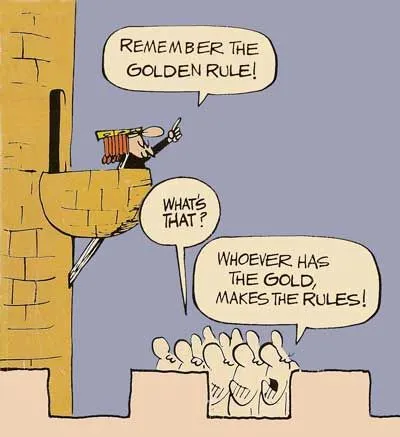
But what if God herself came down from the heavens and told us a different story? What if she said that pain and suffering are the natural order of things? Without them, humanity would stop evolving and fizzle out of existence after a few generations.

What then, hm? Are you going to argue with God? I bet some people would. That would be pretty hilarious, watching pea-brained humans trying to argue with a celestial being. Because once we have decided something is truth... unlearning that behavior is a hundred times more difficult than learning it in the first place.
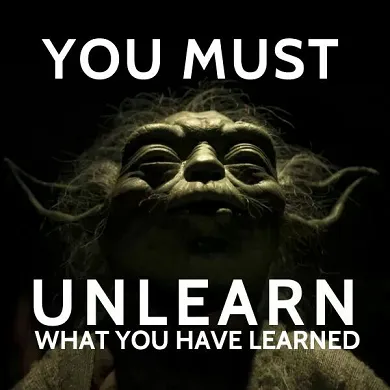
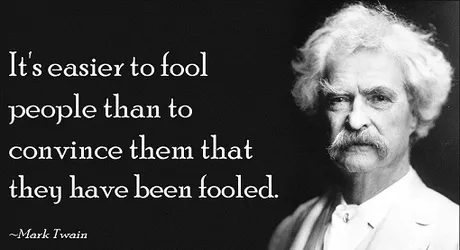
I'm not saying I believe any of this nonsense I'm spouting (killing is... good?). I'm not even a religious person, but I will say that within this context the Old Testament starts making a helluva lot more sense, that's for damn sure.
 I bet you can't guess what this meme is referencing!
I bet you can't guess what this meme is referencing!
So what we really need to realize is that morality itself is a subset of consensus. Morality is when humanity reaches a very high level of consensus, and anyone that falls outside of that opinion is deemed to have some kind of mental illness. Again, I'm not saying that this assessment is incorrect... only that it should be looked at more closely rather than just assumed to be an incontestable fact.
Because the foundation of crypto is also rooted in consensus, it is all but guaranteed that eventually morality itself will start being programmed directly into the chain. We could even go so far as to state that Bitcoin has already slightly achieved this by creating a beacon of trust that can not be corrupted by malignant forces.
It is a certifiable fact that all BTC blocks that were posted yesterday will never be reversed. We already know mathematically that it is extremely difficult to roll back the last 3 blocks (30 minutes). Every 10 minutes that passes it becomes exponentially more difficult. It is a very simplistic system, but we can leverage it into much more.
We can build on top of this trust and create more complex systems that may be less secure than the base layer (Bitcoin) but can do things that Bitcoin can not do. Hive is a good example, and everyone knows how Hive can do things Bitcoin can't so I don't really need to explain it.
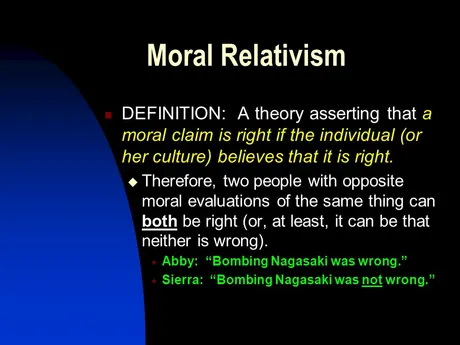
Obviously in certain contexts it becomes very difficult to argue that moral relativism is valid. How can one argue that dropping an atomic bomb on civilians as an acceptable thing to do? It's very obvious that nuclear war is immoral. Honestly I think it's a bad example: but it does bring me to my next point.
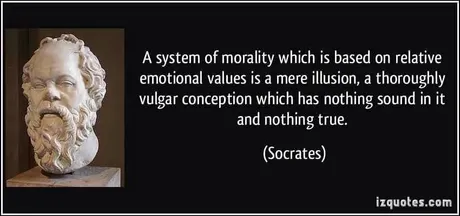
Morality often gets put under the knife of Occam's Razor. We tend to isolate all the variables and just look at one single thing rather than try to compute all the relevant contexts around that event. Life does not happen in a vacuum, thus we must assume that this habit of oversimplification leads to incorrect conclusions some percentage of the time. Even if it is a very small percentage, any chance is significant when discussing morality, especially when implying an absolute truth from which many other truths use as a dependency.
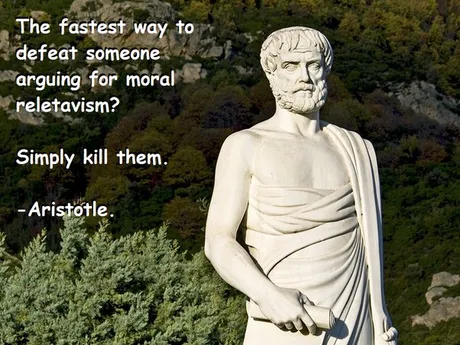
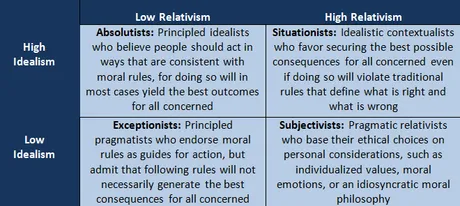
Framing the narrative.
You say potato, I say ritual child sacrifice
See how easy it is to just exaggerate the opposing view to get the automatic victory? Look at how easy it is to frame the conversation in a way that everyone is going to agree with. Well obviously no one could ever justify child sacrifice... therefore everything I say from here on out about morality is an absolute truth. Think of the children, you monster! What a cop out, and yet this is a strategy that gets employed all the time within these conversations. It's absurd and lacks any of the depth or nuance that it deserves.
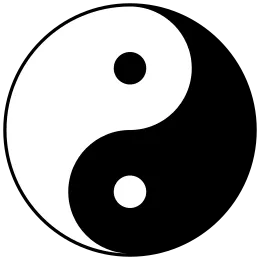
The ultimate problem with idealism and claiming absolute moral superiority is two prong:
- The actual reality we are living in does not align with idealism.
- It completely lacks balance.
Balance is a requirement.
To ignore the importance of balance is a glaring oversight. To say that this or that thing should never happen under any circumstances completely ignores the reality of the situations we find ourselves in.

In many cases it is essentially proven that attempting to push a thing all the way to one side of the spectrum is guaranteed to snap it back to the other side. What does the world look like when people run out of things to complain about? We already know that they're just going to find new things to complain about. Is this progress?

4 seasons
We have winter, summer, fall, and spring. Many things in life are cyclical. Death is just as natural as birth. If billionaires figure out how to make themselves immortal, would it be immoral to stop them? Don't forget: you'd be killing them, and killing them is immoral.
See how easy it is to accept an even greater evil into your life by getting caught up on idealistic theories that do not always apply to reality? There is no secret of the universe written on paper that applies to every situation this simulation has to offer. Theory and reality are separate.
Here's what it's like arguing with an idealist:
We shouldn't go to war; war is immoral.
But we are in a war, they started a war with us. We don't really have a choice in the matter.
Well that shouldn't of happened.
But it did happen.
But it shouldn't have.
But it did.
Nope war is immoral I win.

Rock: meet hard place.
These cyclical conversations don't have any value.
They are totally meaningless within the context of real life.
Nothing but theory-crafting and obtuse variable isolation.
Suicide
Circling back to picking a relevant issue to discuss, suicide is certainly the most relevant one I can think of off the top of my head (and indeed, not child-sacrifice). Here we see where absolute idealism fails in the face of cultural opinion and self-agency.
People who lived in feudal Japan were expected to honor-kill themselves in a very painful way should they dishonor their family or esteemed leader. Christianity claims that suicide is immoral no matter what. The waters get even more muddied in the case of assisted suicide; a situation in which someone in great pain asks for help to do themselves in. Again, to make the claim that there is some one-size-fits-all answer to these questions is extremely small-minded and perhaps says more about the person making the argument than the actual truth of the matter.
Another relevant example would be self-defense. Killing people is bad, but you had to do it in order to save your own life with no other options left. Again, it is not so black-and-white as many idealist would like to make it seem to be.
An even darker example would be a pregnancy that occurred as the result of incest, rape, or otherwise sexual abuse. Who wants to tell the mother that she's not allowed to get an abortion because it's the wrong thing to do? Not it.
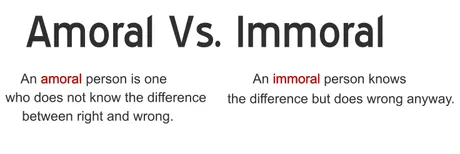

Morality depends on information.
Or in many cases a lack of information. For example, if we could prove beyond any doubt that soldiers who die in battle go to Valhalla, doesn't that make war a little bit less horrific and immoral? To some degree this must be true. How much? Again, such things can't be measured and are completely based on subjective opinion. 10 points. Yes, ten points less immoral is the answer. I have spoken.

But given that we can't prove that the fallen go to Valhalla, well we kind of have to assume they don't. Again, we can't just stack up a bunch of ridiculous variables into the mix. Occam's Razor demands they be shaved off from consideration.
However, the ultimate point to be made here is that new information coming to light can completely change the outcome, because again, the outcome is totally subjective. If we morally justify sending a criminal to prison, what happens when we later find out that they were innocent the entire time? Oops.
And there is even an argument to be made that prison is never morally justified because the current implementation of it causes more harm than good in the world. Prison works very good at punishing, and works very poorly in terms of recidivism, rehabilitation, and making society a better place. How do we resolve this kind of inconsistency on an idealistic level? The answer is: we can't. It's impossible because all outcomes are bad outcomes. Welcome to the real world, jackass! Every question does not have an answer. Knowledge is the light and ignorance is the infinite darkness around it.

Conclusion
Don't take this post too seriously. These are some very hot-button subjects I've touched on, and are guaranteed to be triggering. Ultimately what I'm trying to say here is that we should not get comfortable in assuming that what we know today is the truth. Tomorrow it might not be, even if we were so sure of it before.
Stay skeptical, and try to not fall into the trap that is idealism. I just asked myself when the last time idealism helped me navigate the real world, and if I'm honest, I'm struggling to answer that question. Luckily not every question needs an answer. Prioritize accordingly.
Posted Using LeoFinance Beta
Return from A Lesson in Consensus: Morality is Subjective to edicted's Web3 Blog
